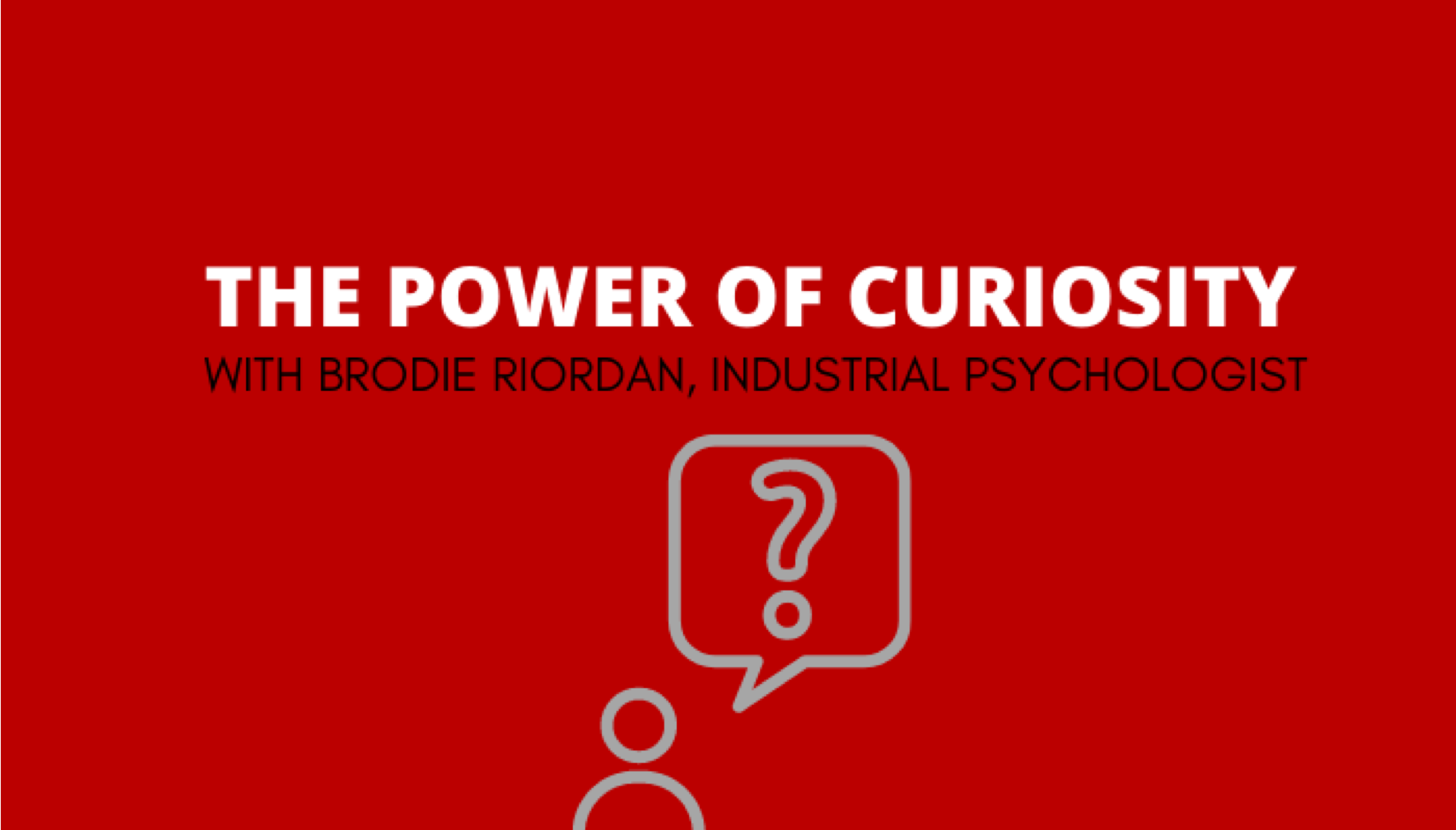
The Power of Curiosity
Think about a few recent challenges or frustrations you faced at work. How many are a result of relationships with colleagues, team members, suppliers, customers, or other people? Equipment and technology cause trouble sometimes, but other people are often at the heart of our most challenging work problems.
For decades, executive coaches have been using a magical formula of deep listening and asking powerful questions to build strong relationships, get to the root of issues, and dramatically improve communication, self-awareness, and clarify expectations
Brodie Riordan, Industrial Psychologist and Leadership Coach, has a secret formula for better relationships with colleagues, team members, suppliers, customers, your family, and your friends; to connect more meaningfully with these individuals, have fewer misunderstandings, and less conflict.
Curious?
Good! That’s the right place to start. Curiosity is the first step in this secret formula.
Research has linked curiosity to such important outcomes as more creative and satisfactory customer solutions, less stress and defensiveness, increased empathy, better listening, more open communication, more information sharing, reduced group conflict, and higher team performance.1
Curiosity is a mindset, a way that you choose to approach the world around you and your interactions with others. Curiosity also connects with two essential skills: listening and asking questions.
When you really listen to someone – not only with your ears, but with your full attention – curiosity naturally follows. Really listening means listening to understand, not to judge or respond. It also means eliminating distractions that will pull your attention away – such as text and email notifications, ringing phones, Slack alerts, and more.
When you really listen and activate your curiosity, questions automatically arise. Open-ended questions draw others out, invite them to share more, helping you learn and also build connection. Asking open-ended questions shows others that you are interested, engaged, and care what they have to say.
Curious to learn more?
Join coach and industrial psychologist Brodie Riordan, PhD for an hour-long breakout session at COE’s annual Summit on April 7th and 8th. You’ll learn more about the life-changing value of deep listening and asking open-ended questions to improve your relationships and communication at work, and also in your personal life.
Brodie Riordan is an industrial psychologist, leadership coach, feedback enthusiast, and author. Her career has included global leadership roles in talent and learning & development with Procter & Gamble, Corporate Executive Board (CEB), and McKinsey & Company, where she co-led Partner Learning and led learning and development for Senior Partners, globally. Brodie is a Georgetown-trained, ICF-certified leadership coach with 400+ hours of coaching experience. She has extensive experiencing coaching both virtually and in-person, across five continents, with clients ranging from McKinsey BAs to private sector C-suite and Federal Government SES level leaders.
She is on a personal mission to change the way people think about feedback, and encourage them to embrace it at least 10% more (or hate it 10% less…). Her latest book, Feedback Fundamentals and Evidence-Based Best Practices distills findings from decades of research into actionable, approachable tools for work and life. Upon its release, the book was the #1 best seller in organizational/occupational psychology on Amazon.
In addition to managing her own practice, Ocular LLC, Brodie teaches part time in the MBA program at the Robert H Smith School of Business at the University of Maryland, and in Georgetown University's HR Master’s program. Brodie has published over 2 dozen journal articles, books, and book chapters on coaching, feedback, and leadership. Brodie has a MA and PhD in Industrial/Organizational (I/O) Psychology from the University of Akron and a BA in psychology from Washington and Lee University.
For more information about COE’s 2021 Summit, including pricing, keynote speakers, breakout sessions, and more. It’s only 2 weeks away, so be sure to register now!
1Francesca Gino, “The business case for curiosity,” Harvard Business Review, 2018




